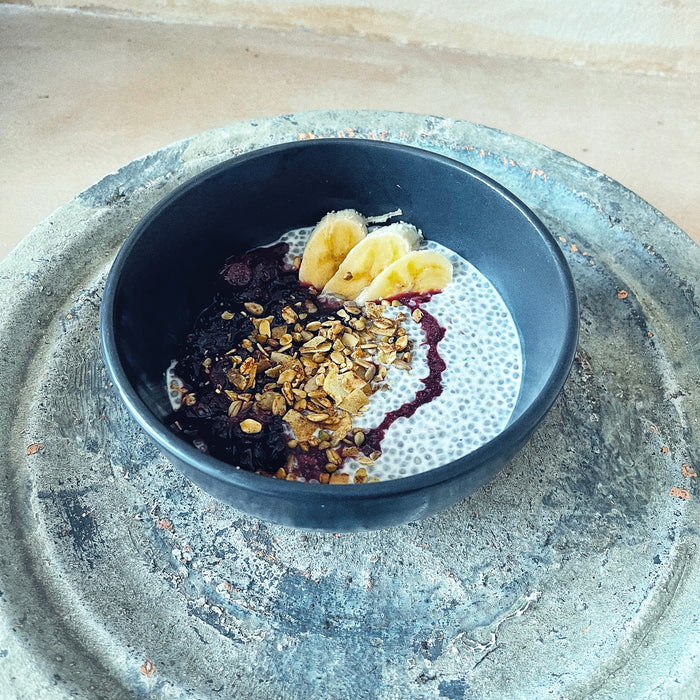Organic foods are defined as food products that are grown and/or processed following government standards of organic farming. These standards vary across the globe but usually include the cycling of resources and soil that foods are grown in, the promotion of environmental balance, and the conservation of biodiversity.
The use of the word ‘organic’ within Australia is unregulated, and so some businesses choose to only sell certified organic foods to give their customers assurance that the food they are buying complies with the Australian organic standards. Certified organic farms must undergo annual audits and keep ongoing records of their operations to maintain certification and use a certification logo.
The BUD logo (Australian Certified Organic) is the most recognised but is only one of several certification options available for farmers. Organic foods are grown in a holistic farming system, which adds life and nutrients to the soil. Cycling organic matter and animal manure back into the soil (such as using compost) adds nutrients and earthworms and promotes microbial life within the soil, optimising soil health. Organic farming also supports biodiversity and insect life by growing a variety of crops at the same time and creating surrounding habitats for wildlife to maximise natural pest control and the general health of the environment. In contrast, conventional agriculture uses synthetic fertilisers, pesticides, monocropping and tillage, which deplete the soil of nutrients and, over time, kill the life in the soil, making poorer quality food while also reducing biodiversity and depleting the natural environment.
To paint a picture of organic farming, a farmer who plans to grow organic vegetables will have had chickens, pigs, cows and other farm animals grazing on the land prior to planting the vegetables. The soil is then turned with the manure before planting. The farmer will also grow other non-food plants around their crops to promote insect life that will help keep the crops healthy and to provide habitat for wildlife for natural pest control. The farmer will move their animals to a different section of the farm where they plan to grow their crop next season so the added nutrients will be available in this soil and eventually in the food. Rarely will the same soil be used to grow the same crop consecutively. These methods promote healthy, nutrient-dense soils and strong plants, which can lead to more nutrient-dense organic fruits and vegetables.
In organic farming, weeds are controlled by using mulching, tarping, cover cropping, hand weeding, and crop rotation techniques instead of using herbicides, which can harm health. Before the industrialisation of our food system, these techniques were the way all farmers tended their farms. So, we can view organic farming as a return to traditional natural techniques of food growth that will increase consumer health and well-being.
Due to these farming techniques, organic produce does not last for months in cold storage like commercially grown produce. Organic foods rot and decay at a natural rate. When purchasing organic fruits and vegetables, they are always fresher and contain greater nutrient levels - even if they may look smaller or misshapen compared to those you find in the supermarket (remember - this is how food is supposed to look, not large and conforming to a particular shape).
Organic farming is also better for the environment. These farming techniques use less energy, increase soil fertility, reduce soil erosion, conserve water, and reduce pollution. Organic farms are usually smaller and closer to resellers due to the spoil rate of the food. This means that the carbon footprint of the food to the consumer is far smaller than foods that are grown interstate or overseas and have to travel great distances before they hit the plate.
Unfortunately, many people state the reason that they do not make the switch from conventional to organic foods is due to organic foods being a higher price. Once we start thinking of the benefits to our health, the environment, the farmer, society and future generations, it is much easier to see that the benefits of eating organic foods far outweigh the costs. A good example of this benefit-to-cost ratio can be seen in Mediterranean countries where farming their own produce or buying at farmer's markets is far greater than in Australia. On average, people in these countries spend a far greater percentage of their income on food, and their food quality is better compared to Western countries, but their rates of chronic lifestyle diseases like heart disease, diabetes, cancer and mental health issues are far less.
September is Australian Organic Awareness Month - visit our health food stores for the best selection of organic produce and organic products, or shop our selection of non-perishable organic bulk food and other organic products online.
Many thanks to Dr. Megan Lee for contributing to this blog.






